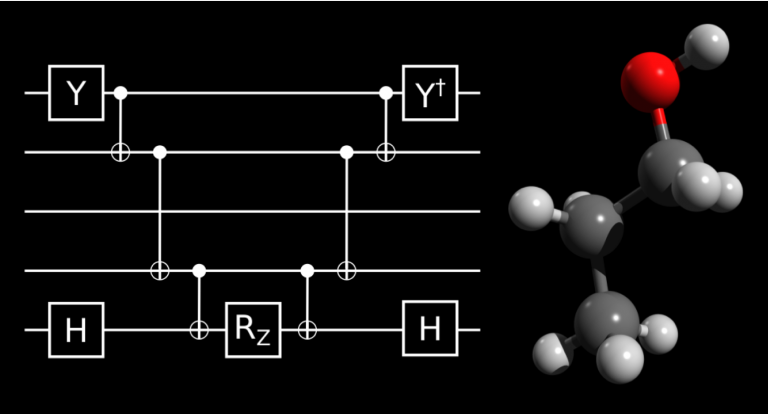The ability to perform highly accurate quantum chemistry calculations is often cited as being one of the most impactful uses of emergent quantum computing devices. A scalable quantum computer could in principle perform full configuration interaction level electronic structure theory calculations in polynomial time, in contrast to the exponential resources required when using a classical computer. The efficient calculation of highly accurate molecular energetics could have a dramatic impact on computational chemistry, particularly when used as input data for further calculations.


While many recent advances have been demonstrated in the development of a scalable quantum computer, such devices are presently still limited to a relatively small size in contrast to classical computers. As such, both hardware and software optimisations are necessary in order to demonstrate the validity of this technique. Our work, performed in collaboration with Imperial College London and Tufts University, focuses on how quantum algorithms for quantum chemistry can be optimised so as to maximise the use of the limited available quantum computational resources in the near future.
Our most recent work has focussed on the Bravyi-Kitaev transformation – an alternative scheme to the canonical Jordan-Wigner transformation, which maps states of and operations upon electrons to states of and operations upon qubits. Although it has been shown that, without further optimisation techniques, this mapping scheme is asymptotically superior to the Jordan-Wigner transformation, demonstrations of its efficacy have previously been limited to small individual test cases, chiefly the hydrogen and methane molecules in a minimal basis set.
Published in the Journal for Chemical Theory and Computation (https://pubs.acs.org/doi/abs/10.1021/acs.jctc.8b00450), our recent paper – A Comparison of the Bravyi-Kitaev and Jordan-Wigner transformations for the Quantum Simulation of Quantum Chemistry – is a direct comparison of both mapping schemes, considering both unoptimised and optimised quantum circuits. We use 86 test cases, and find that in most configurations the Bravyi-Kitaev mapping is at least equally as efficient as the Jordan-Wigner mapping, and in many cases is dramatically more efficient. This emphasizes the need for large scale numerical analysis of quantum circuit optimisation attempts using real molecular input data.
 Close
Close

